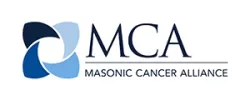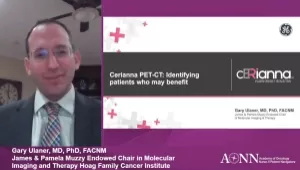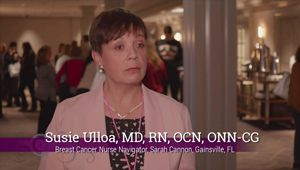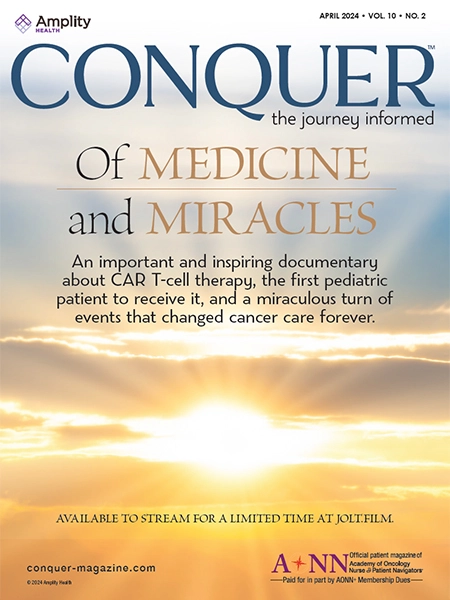Disease & Tumor Database
- All
- Head & Neck Cancer
- Breast Cancer
- Chronic Lymphocytic Leukemia
- Lung Cancer
- Multiple Myeloma
- Adolescents and Young Adults
- Barriers to Care
- Cancer Biomarkers
- Evidence into Practice
- Health Disparities
- Insights into Navigation
- Member's Memo
- News & Updates
- ONE Award
- Patient Advocacy/Empowerment
- Podcast Takeaways
- Research
- Thoracic Cancer
Navigating Oral Therapy in Breast Cancer: Practice Strategies to Promote Medication Adherence
Optimizing Bispecific Antibody Therapy in Multiple Myeloma: A Resource Guide for Nurse and Patient Navigators
The therapeutic landscape of multiple myeloma (MM) has undergone a remarkable evolution over the past 2 decades. The development and application of novel agents and new generations of drugs, such as proteasome inhibitors, immunomodulatory drugs, and monoclonal antibody–based therapies, have resulted in improved prognosis and extended survival of patients with MM. Although these therapeutic advances are opportune and transformative, they add complexity to the MM clinical algorithms.
This resource guide is a review of bispecific antibodies, one of the new therapies currently being studied in clinical trials for patients with relapsed/refractory MM (RRMM), and best practices for oncology nurses and nurse and patient navigators, social workers, care coordinators, and advanced practice providers in supporting patients with RRMM who may be eligible for bispecific antibody–based treatment.
Breast Cancer Patients’ Perception of Their Body Image
Social Determinants of Breast Cancer for Young Survivors
Lung Cancer Screening Benefits and Guidelines
Navigating Multiple Myeloma: The Critical Importance of the First 90 Days
Cerianna PET-CT: Identifying Patients Who May Benefit
Navigating Chronic Lymphocytic Leukemia: The Critical Importance of the First 90 Days
CAR T-Cell Therapy: Implications for Navigation Practice
Breast Cancer Risks for Those Taking Female Hormones
Mastectomy Surgery for Treatment of Breast Cancer—We’ve Come a Long Way Baby!
Collaborative Oncology Navigation Key to Tackling Racial Gap in Breast Cancer Survival
Takeaways from Young Women with Breast Cancer: Needs and Opportunities
Evaluating the Correlation of Breast Cancer and Divorce
Supporting a Patient’s Choice to Smoke When Dying of Stage IV Lung Cancer
New Low-Dose Computed Tomography (LDCT) Guidelines Expand Screening Opportunities
A Survivor and a Navigator
Breaking News: Sellas Announces Promising Data on NeuVax in Combination with Herceptin in HER2 1+/2+ Breast Cancer
If Your Bra Could Talk
Helping Patients Create a Legacy
Breast Cancer Awareness Month
Members Memo: Thoracic Nurse Navigation Certification Task Force
Insights into Navigation: Genetics and Breast Cancer Surgery
Insights into Navigation: Thoracic Cancer Certification
Navigators Should Make Women Aware of Breast Density’s Effect on Cancer Risk
Seasoned Navigator: A Case Study on Care Transitions in Genomic Testing and Timely Treatment Decision-Making
Novice Navigator: A Case Study on Community Outreach for Head and Neck Cancers
Educating and Supporting Breast Cancer Patients in Making Decisions about Treatment
Supporting and Empowering Breast Cancer Patients to Have No Treatment Regrets Years Later
Navigating the Underserved and Minority Breast Cancer Patients— Challenges and Solutions
Where Is the Patient’s Voice?
Reading and Reflecting
Embarking on Hormonal Therapy—Educating the Patient and Her Spouse/Partner
The Nurse Navigator's Role in Preventing Medical Legal Issues Associated with Breast Cancer Diagnosis and Treatment: Part 1
The Nurse Navigator's Role in Preventing Medical Legal Issues Associated with Breast Cancer Diagnosis and Treatment: Part 2
Educating Your Patient about Surgical Treatment Options for Breast Cancer
Addressing Psychological Support Needs in Breast Cancer Patients
Navigating Patients Battling Metastatic Disease
Ensuring Your Breast Cancer Patient Is Referred for Reconstruction Consultation
The Breast Cancer Nurse Navigator's Role: Discussing Sexuality and Intimacy with Your Patients
Thoracic Oncology Navigation: Introduction
Thank You to Our Corporate Sponsors and Alliance Partners!
-

Major Corporate Sponsor
-

Patron Corporate Sponsor
-

Patron Corporate Sponsor
-

Patron Corporate Sponsor
-

Industry Relations
Council Member -

Industry Relations
Council Member -

Industry Relations
Council Member -

National Alliance Partner
-

National Alliance Partner
-

National Alliance Partner
-

National Alliance Partner
Privacy Notice | Terms of Use
© 2009- DBA AONN+ Academy of Oncology Nurse & Patient Navigators® | PO Box 563, Cranbury, NJ 08512 |
AONN+ DBA AONN+ is a 501(c)(6) organization under federal tax guidelines. AONN+ Foundation for Learning, Inc. a 501(c)(3) organization under federal tax guidelines.
AONN+ Advantage, LLC, a wholly owned subsidiary of AONN+.


















